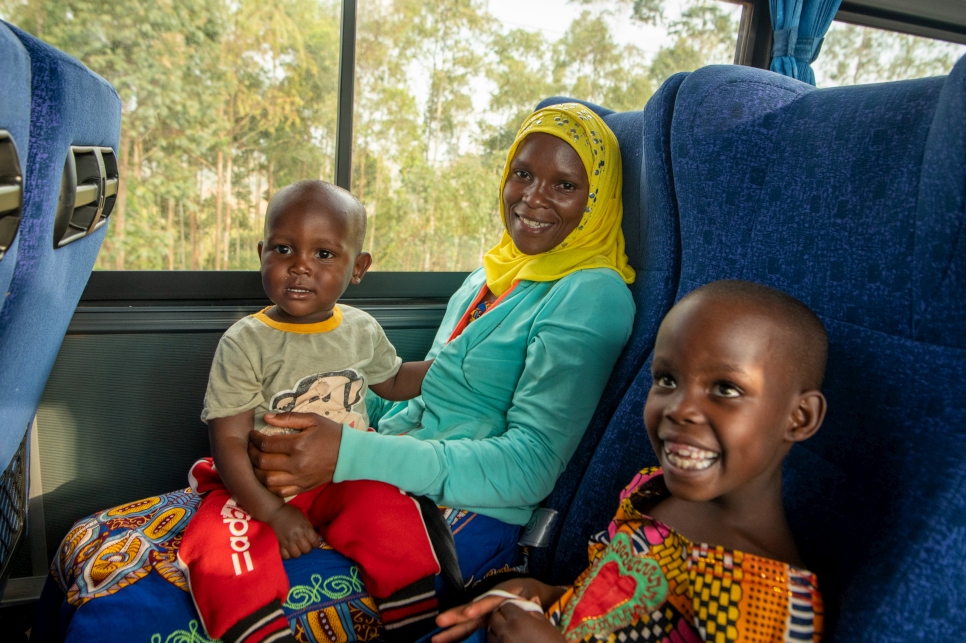 A Burundian refugee family takes a bus home from Tanzania. © UNHCR/Samuel Otieno
A Burundian refugee family takes a bus home from Tanzania. © UNHCR/Samuel Otieno
During her first visit to Burundi, UN Deputy High Commissioner for Refugees Kelly T. Clements urged for increased international support to areas and communities where Burundian refugees are opting to return home. More than 200,000 Burundian refugees have returned from neighbouring countries since 2017.
"In today's world of conflicts, persecution, climate shocks, and rising poverty and hunger, the opportunities for refugees to go home are few and far between," said Clements. "Burundi is a rare exception and my appeal to the international community is to pledge strong support that will accelerate ongoing reintegration efforts and enable real solutions, the one all refugees want - to be able to go home and rebuild their lives."
Speaking at the High-Level Roundtable on the Return and Reintegration of Burundian Refugees in Bujumbura today, which brought together government officials, aid agencies, donors, development actors and Burundian returnees, Clements appealed for more development financing to aid refugee reintegration and to make returns sustainable.
At the event, H.E Minister of Interior Martin Niteretse said the Government of Burundi was committed to supporting returnees but called for stronger humanitarian and development efforts.
"We are grateful to UNHCR and other stakeholders for supporting Burundian refugees who have decided to return home," said Niteretse. "We hope that through these discussions, we will have a better understanding of how we can all work together to provide durable solutions in the return and reintegration process so that no one is left behind."
Ahead of the roundtable, the Deputy High Commissioner saw first-hand the challenges that recently returned refugees are facing after years of living in exile during a visit to Makamba province.
"I met families, grateful to be home again but anxious about what jobs are available, what means they have to cultivate their land, needing shelter, education for their children, documentation, and access to basic services," said Clements.
During her visit to the country, Clements also met with Congolese refugees in the Nyakanda camp in eastern Burundi. She visited bakeries, carpentry shops, and fish farms run by refugees to earn an income, and which contribute to local economies within the host community.
Burundi hosts more than 87,000 refugees, mainly from the Democratic Republic of the Congo.
"To help refugees in Burundi and to better support Burundians returning home, we need more support," said Clements.
As of 25 October, UNHCR had received just 33 per cent of its US$80.5 million funding requirement for Burundi for 2022.
Sponsored by the European Union, the high-level roundtable in Burundi is taking place ahead of the 2022 High Commissioner's Dialogue on Protection Challenges, to be held in Geneva in December 2022. The Dialogue will focus on strengthening development cooperation to advance protection, inclusion and solutions for refugees, internally displaced persons (IDPs), stateless persons, and returnees.






